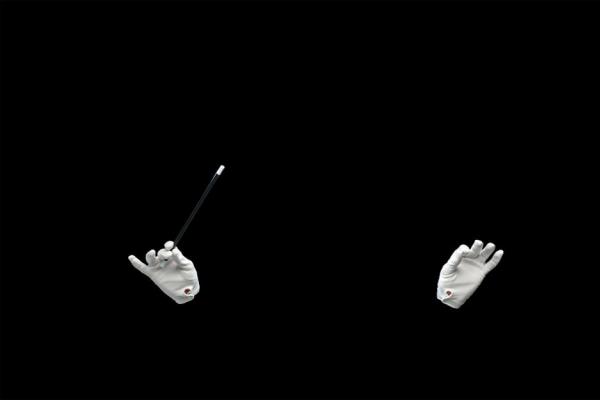Want to get weekly reading recommendations from Sojourners editors? Sign up for our newsletter here.
In the sci-fi TV series For All Mankind, the space race never ended. The butterfly effect of this historical re-write are huge. Mitchell Atencio broke it down in his review for Sojourners’ latest issue: “Because of space travel, electric cars would be normal in 1983 (a small nod that the climate crisis is averted), the United States leaves Vietnam earlier than in reality, and an undocumented immigrant is welcomed by her colleagues in the Reagan administration.”
Ah, the sweet escapism of sci-fi and fantasy. From The Hunger Games to The Force Awakens, women and people of color are presidents, space commanders, and leaders of the resistance without protest or fanfare from those around them. Dystopian America and a Galaxy Far Far Away know no racism or sexism, it seems. But that’s not necessarily a good thing for those of us in the audience. As Atencio wrote of For All Mankind, “The willingness to embrace fictional diversity … but an unwillingness to deal with the tensions that would follow, is maybe the farthest stretch on the show.” Sometimes fiction makes it look too easy, and in doing so, glosses over painful histories that still impact us today.
It’s the temptation of the magic wand; the allure of the quick fix. But as Josiah R. Daniels wrote to his nephew in the recent issue of Geez, “the incremental move toward justice is grueling.” (If only all change could be as swift and easy as New York City eliminating late fees at public libraries.) This is the country where slavery gave way to Jim Crow, which morphed into mass incarceration and racialized policing. Change, in other words, isn’t a magic wand or a space ship. We don’t blast off into progress, we crawl. Crawling, at least, is better than stagnation.
“I hope when you read this, that thing which our society has been structured upon — the thing that has hunted and haunted your ancestors in this hard land — has been supplanted by a society structured around justice,” Daniels writes to his nephew. “Whatever context you read this letter in, know that the story of your family’s perseverance provides a political vision for a more perfect society.”
Below are 10 articles working toward a more perfect society.
1. ‘For All Mankind' Believes Travel To The Moon Will Solve Racism. It's Not That Simple
“The question is not whether For All Mankind is willing to portray history correctly in a surgical sense, but whether it is willing to portray it accurately, or if it wants to feed the broader myth of space travel.” By Mitchell Atencio via Sojourners.
2. When Justice Is Illegal: A Letter to my Nephew
“I hope when you read this, that thing which our society has been structured upon – the thing that has hunted and haunted your ancestors in this hard land – has been supplanted by a society structured around justice.” By Josiah R. Daniels via Geez.
3. ‘Midnight Mass’ Shows the Horrors of Co-Opted Faith
The series employs horror tropes to show both the healing and destructive ways religion responds to pain. By Abby Olcese via sojo.net.
4. Sharing Many of the Same Flaws as its Subject ‘The Rise and Fall of Mars Hill’ Podcast Puts Blame Anywhere But Where It Belongs
“Why use language like “kill,” suggesting a crime had happened, rather than control, authoritarianism, and/or megalomania?” By Jessica Johnson via Religion Dispatches.
5. ‘That Doesn’t Sound Like a Seminary.’
Why Hartford Seminary is changing its name — and what that means for the future of theological education in the United States. By Mitchell Atencio via sojo.net.
6. Apocalypse Now: On Vaccination, Revelation, and the Mark of the Beast
“Many American Evangelicals consider Revelation to be a deeply contemporary and urgent vision. The latest manifestation, the idea that the Covid-19 vaccine is the fabled ‘mark of the beast,’ has exploded with the arrival of widespread vaccine rollouts and mandates.” By Talia Bracha Lavin via theswordandthesandwich.substack.com.
7. God of Our Mold and Decay
When countless pounds of tomatoes rot in their crates while people nearby go hungry, who is to blame? By Amar D. Peterman via sojo.net.
8. NYC’s Public Libraries Eliminate Late Fees
“For those who can’t afford the fines — disproportionately low-income New Yorkers — they become a real barrier to access that we can no longer accept.” By Jen Carlson via Gothamist.
9. Pauli Murray—Priest, Lawyer, Organizer—Refused to Be Diminutive
Murray is often lauded as the first Black woman in the U.S. to become an Episcopal priest. But a new film shows that Murray contained multitudes. By Alicia T. Crosby via sojo.net
10. Apple Picking Is a Bizarre Imitation of Hard Work
Our performative, Insta-worthy fall visits to orchards connect us to the outdoors, but disconnect us from labor. By Dan Greene via Vox.
Got something to say about what you're reading? We value your feedback!






